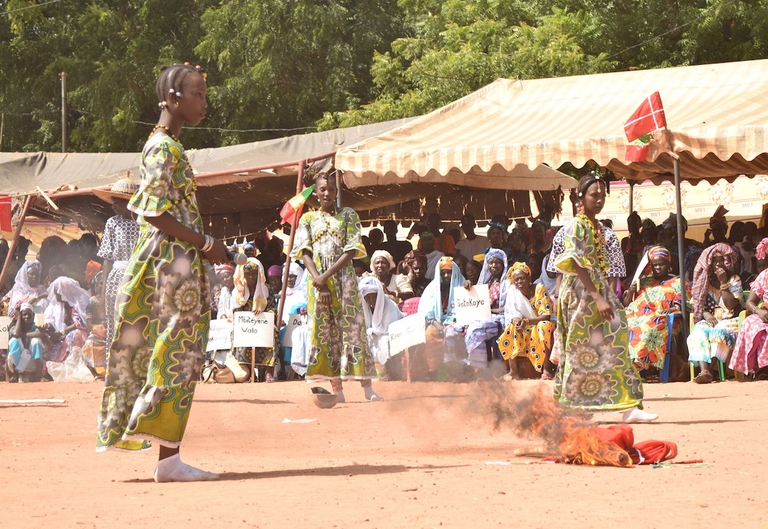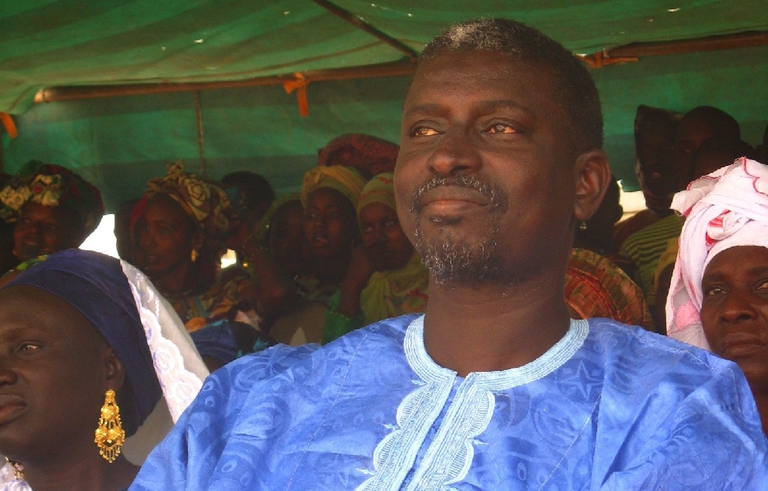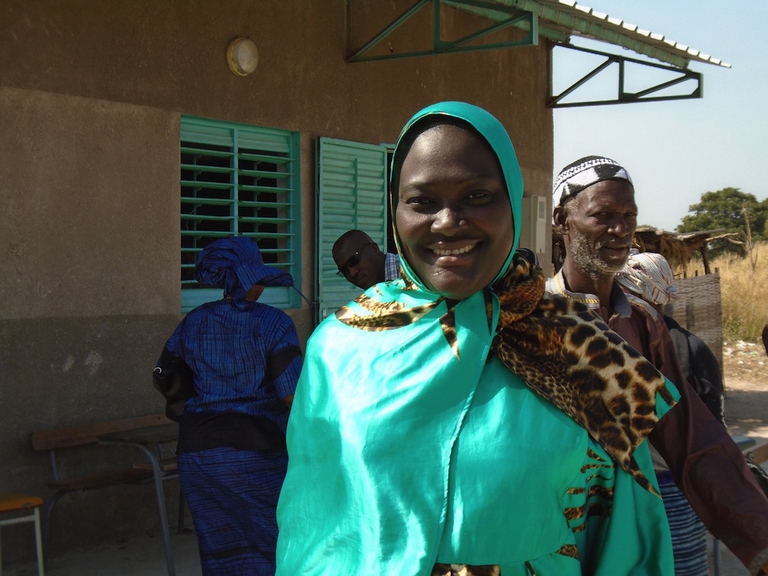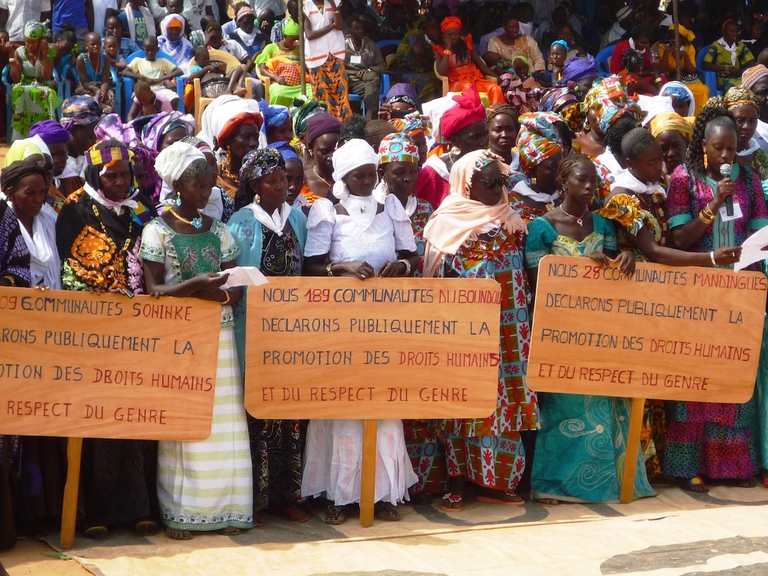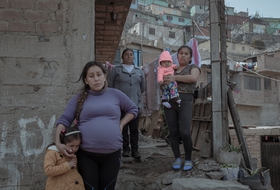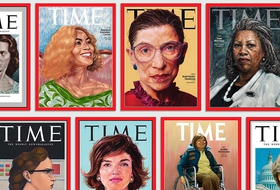
One in three women have suffered physical or sexual violence. With contributions from Europe, Africa, Asia and Latin America, we look at how this shadow pandemic affects every corner of the world.
The 6th of February is the United Nations’ International Day of Zero Tolerance for Female Genital Mutilation. 140 million women and girls principally in the Middle East and Africa have undergone the practice, which is deeply rooted in local customs. The eradication of female genital mutilation (FGM), also known as female genital cutting (FGC) –
The 6th of February is the United Nations’ International Day of Zero Tolerance for Female Genital Mutilation. 140 million women and girls principally in the Middle East and Africa have undergone the practice, which is deeply rooted in local customs. The eradication of female genital mutilation (FGM), also known as female genital cutting (FGC) – a more neutral term for such a sensitive issue – can only happen if it emerges from within communities themselves. This is the key to the success of the Senegal-based NGO Tostan, which through its human rights and sustainable development programme has enabled around 7,300 communities, home to over 7 million people, to publicly renounce FGC.
Tostan means “breakthrough” in Wolof, one of West Africa’s native languages. This name captures its founding principle: by teaching local communities about human rights and giving them the tools to take control of their own development, it is those directly involved who decide to give up harmful traditions such as FGC and child marriage.
When US-born Molly Melching founded Tostan in 1991, after first visiting Senegal over fifteen years earlier, the abandonment of FGC wasn’t one of its objectives. Yet by engaging with communities through activities such as translating the Universal Declaration of Human Rights in local languages, fostering education on child nutrition and maternal health, and facilitating the building of wells and schools, it was the women themselves who began bringing the topic up. Thus the roots were planted for the mapping of a journey that over 200,000 people have embarked upon in six West African countries: Tostan’s Community Empowerment Programme (CEP).
“The Tostan approach is different from others because its teaching method is based on respect for the person,” explains Khalidou Sy, former National Coordinator of Tostan Senegal. Ultimately, “participants learn and exchange experiences. They investigate the village and find a consensus for solving the problems of their community”. This has led the World Health Organisation to nominate CEPs as one of the most effective approaches to sustainable development.
The process is multidimensional. Community members attend human rights classes, as well as gaining in literacy, math and management skills. These are the kobi and aawde phases, respectively Fulani and Mandinka words that mean “to prepare the field for planting” and “to plant the seed”. These run in parallel to the creation of Community Management Committees, in charge of implementing the development projects the communities decide to pursue. The committees are democratically elected and, of their seventeen members, nine are women. Empowering women with resource management and decision-making positions has led to surprising results, such as 41 women who had participated in Tostan programmes being elected as local Rural Councilors in a conservative region of Senegal in 2014.
“During discussions in Tostan classes on the themes of human rights and reproductive health, participants identify FGC as a violation of certain rights of women and girls, such as that to be protected against all forms of violence and the right to health,” says Programmes Manager Penda Mbaye. “Participants share the new information with others in the village through theater, song, play, poetry and images, Khalidou Sy specifies, and “the decisions taken in these meetings often lead to public declarations for the abandonment of practices harmful to health”.
The governments of Senegal and The Gambia have declared CEPs as their preferred method for contrasting FGC. As Penda Mbaye illustrates, this is because “the Tostan approach gives confidence to the communities by strengthening their positive traditions and giving them the means to review their harmful traditions in order to abandon them”.
When in the mid-1990s religious leader Demba Diawara first heard that women were speaking out against FGC as a result of Tostan’s work in Senegalese villages, he was horrified. However, after speaking to Molly Melching and investigating the health effects of FGC, such as heightened risk of infection and problems related to childbirth, he changed position entirely. He travelled the country for over a decade, visiting around 350 villages to campaign for the abandonment of FGC. The eighty-year-old is now one of Tostan’s key advisers.
His story shows that it is not only women, but also men, who are the bearers of change. “We share the objectives of the programme with them so that some of them participate in classes, and allow their wives and daughters to participate,” Penda Mbaye says, “they are involved in all social mobilization activities and decisions and raise awareness about the programme”. Ultimately though, it is the community as a whole that comes to abandon FGC.
When groups of communities come together and take this decision, together with the renouncing of child marriage, Tostan assists them in organizing public declarations in which the change is celebrated together with administrative officials as well as traditional and religious leaders. “It is a moment of solemnity and joy,” Khalidou Sy explains. Traditional songs and dances accompany the festive atmosphere: because, whilst certain traditions need to be questioned, others should be defended as they are what make communities unique and proud of who they are.
Siamo anche su WhatsApp. Segui il canale ufficiale LifeGate per restare aggiornata, aggiornato sulle ultime notizie e sulle nostre attività.
![]()
Quest'opera è distribuita con Licenza Creative Commons Attribuzione - Non commerciale - Non opere derivate 4.0 Internazionale.
One in three women have suffered physical or sexual violence. With contributions from Europe, Africa, Asia and Latin America, we look at how this shadow pandemic affects every corner of the world.
The Istanbul Convention against gender-based and domestic violence marks its tenth anniversary. We look at what it is, who its signatories are, and what the future might hold.
European Commission President Ursula von der Leyen reminded us of the gravity of violence against women around the world, and of the Istanbul Convention’s utmost importance.
President Erdoğan has pulled Turkey out of the Istanbul Convention, key in the fight against gender violence, claiming that it favours the LGBT community rather than family values.
Violence against women in Peru has increased as a result of Covid-19 lockdowns. 14,912 people were reported missing from January to November 2020, more than half of them minors and 64 per cent women. People have been confined to their homes for months, many forced to endure poor physical, economic and social conditions. A situation that
Joys Estefani Qqueccaño Huamani, 24, disappeared from her rural community in Peru on 9 October. Her family began looking for her independently of the authorities and despite the resistance of relatives of Joys Estefani’s ex-partner Arturo Ccana Condori, 32, charged with committing violence against her on 28 September, eleven days before Joys Estefani disappeared. Photos
Costa Rica celebrated its first same-sex marriage when two women, Alexandra Quiros and Dunia Araya, celebrated their wedding: an “extraordinary moment”.
The pandemic and its restrictions are affecting everyone, without exceptions. However factors like housing, income inequalities, gender, access to technology and working conditions are influencing how people experience the health crisis.
Time magazine’s 100 Women of the Year project sheds light on influential women’s stories, from Amelia Earhart to Greta Thunberg. A selection of some of the greats for International Women’s Day.
